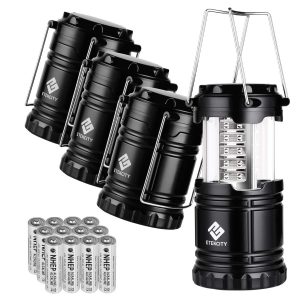We live in a world where civilization, reason and logic are said to be at historic heights, yet so many people today, especially our youth, are making new lows in relevant intelligence and labor under a host of myths and illusions. A few of the myths and misconceptions relate to disaster preparedness and ‘Preppers’.
So what is a ‘Prepper’ anyway? The term is slang for anyone who has undertaken some level of study and readiness in regard to disaster preparedness. For instance, people who work for the Federal Emergency Management Agency (‘FEMA’) are all professional ‘Preppers’, although they prefer not to be known by that term, since it is also used for civilians who have endeavored to attain some level of disaster preparedness in their own homes and communities. The members of the National Guard are also for all intents and purposes “Preppers’, who are trained and prepared to respond to a host of issues ranging from assisting during disaster relief efforts to fighting fires and controlling lawlessness and looting during civil unrest.
Prepping, as it is known, can be something as simple as having a jack, tool kit, highway flares, first aid kit and spare tire in your vehicle, which makes you more ‘prepared’ for a breakdown on the highway. However, prepping can be much more involved and could potentially include; stores of food, clothing, personal items, first aid and medicines, water supply, fuel, flashlights, radio, and so forth, in preparation of a more significant threat to your family and home, such as a hurricane, tornado or an earthquake.
Taking these kind of precautions are quite reasonable and prudent, and the level of preparedness depends greatly on the potential risks that might materialize. There is a framework of logic, which many Preppers use in determining a level of preparedness that is in measured proportion to any potential threat, as determined by each Prepper. Many times, financial considerations will greatly affect the level of preparedness that is undertaken by individuals, whereas governments and government agencies may not be nearly as capital constrained as individual citizens.
In any case, people who adopt the perspective that Preppers are merely ‘paranoid’ need to carefully evaluate their own psychological motive for any such observations. In many cases, I have found that the people who adopt that perspective are suffering from ignorance and illusions driven by TV shows and movies. As I pointed out herein above, everyone who works at FEMA, or for FEMA are for all intents and purposes ‘Preppers’. So that presents the question; is FEMA an agency full of paranoid people? My answer is they are no more paranoid than any average American; they are just more aware of the statistics related to natural and made-caused disasters, and have taken the logical steps to be ready to respond to such events, nothing more. The same is generally true for civilian Preppers as well.
That said, some people today prefer an ‘ignorance is bliss’ approach to disaster preparedness and amazingly prefer not to be made aware of the very real potential risks in the world around them. Of course such a preference is highly illogical and is akin to remaining in denial as to the regularity of traffic accidents and not being properly prepared for those by wearing a seat belt and having auto insurance. Some people are so illogical they will even increase their risk for automotive related disasters, including serious injury and death by using drugs and alcohol while driving! Yet some of these same highly illogical people will turn around and accuse Preppers of being paranoid! It’s hard to understand illogical people, and I am sure that a percentage of those illogical people are merely stupid.
Of course as with any endeavor, regardless of what it is, or what it involves, there are always some people who are misled by the misinformed few. In the case of Preppers and disaster preparedness, one incorrect stereotype is fueled by the people who proffer ‘guns and ammo’ as a major priority in disaster preparedness. I have written about this in the past, so instead of going into that subject here, I will merely say that guns and ammo are not the primary need in any disaster, and people who proffer that are misinformed. Added to which, the people who innocently subscribe to that thesis on disaster preparedness, tend to add a token of credibility to the myth and viewpoint that Preppers and disaster preparedness is all about lots of guns and ammo, when that is simply not the case.
The worst part of the Prepper myth is that such misconceptions and stereotypes will, through social pressure, cause some intelligent people who are overly concerned about what their neighbors and friends think about them, to forego proper disaster preparedness, lest they run the risk of social criticism by the ignorant class of people. Still others who are either too lazy or don’t care because they are not informed, prefer to throw stones at what they themselves won’t or can’t do. I have overheard such people making fun of people who are trying to obtain a better level of health by eating right or through fitness by going to the gym or running, while the scoffer smokes a cigarette and consumes a greasy hamburger. Some people just won’t do the things that would help them to live a longer, healthier life. Instead, they will engage in all forms of high-risk illogical behavior, like texting and driving. Fools like that have no business casting opinions about others who are taking the steps to protect themselves and people around them, who they care about.
My advice is simple: Forget what the neighbors or your friends think; do your own due-diligence and make the preparations that you think are in measured proportions to the legitimate risk profile that you determine. And do take advantage of the great resources of information that your taxpayer dollars have paid for; NASA, NOAA, FEMA, USGS and similar professional agencies make reams of historical and predicted disaster information available online. It takes just a little work and time to formulate a risk matrix for the locality of your home. And the time and any money you spend will give you peace of mind, just like having auto insurance and a spare tire in your trunk. There is a huge difference between creating the conditions that support peace of mind, and paranoia.
Being prepared today means, being ready for tomorrow.
Cheers! Capt. Bill
Capt. William E. Simpson II – USMM Ret.
Semper Veritas / Semper Paratus
Preparedness Articles: http://williamesimpson.com/capt-bills-articles-at-other-media-outlets
IMDb: http://www.imdb.com/name/nm6505899/
Twitter: https://twitter.com/NauticalPrepper
Member: Authors Guild






 3-Pack Mashed Potatoes Case - 216 Servings
3-Pack Mashed Potatoes Case - 216 Servings  4-Pack Portable LED Camping Lantern Flashlight
4-Pack Portable LED Camping Lantern Flashlight
2 comments
Very sensible article, thank you. I agree with all of it. Here in France prepping is a rarity but surprisingly people will laugh at you if you say you’re a prepper but most will find it right if you just leave the expression and juste explain what you do.
hi nolwenn,
i am suprised that folks from europe don’t prep more given the history of 2 world war’s in your back yard.
i get that americans feel safer (mistakenly) given our current administration.(a muslim in sheeps clothing)
and yes we preppers catch flack also. but i say keep on keeping on.:-)